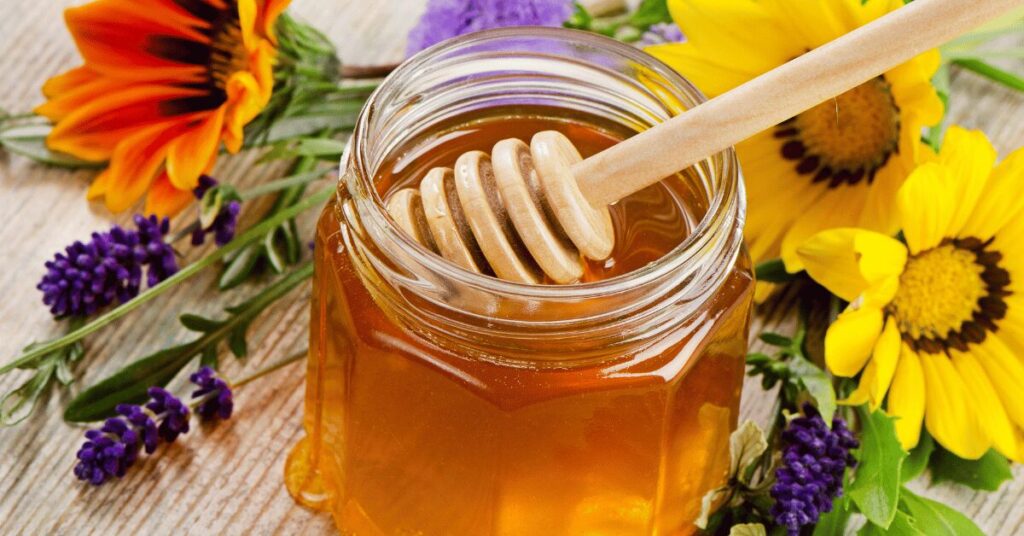
As the seasons change, many individuals find themselves battling the uncomfortable symptoms of seasonal allergies. From sneezing and itching to congestion and watery eyes, these symptoms can significantly impact daily life. While conventional antihistamine medications provide temporary relief, they often come with unwanted side effects. Let’s delve into the simple physiology of allergies and explore natural solutions to alleviate symptoms effectively.
Understanding the Physiology of Allergies:
Seasonal allergies, also known as allergic rhinitis or hay fever, occur when the immune system reacts to allergens like pollen, dust mites, or pet dander. When exposed to these allergens, the immune system produces antibodies, treating them as threats. In response, mast cells release histamine, a compound that triggers inflammation and the typical allergy symptoms.
While these reactions are part of the body’s defense mechanism, they can lead to discomfort and inconvenience. Mucus production increases, causing nasal congestion and post-nasal drip. Sneezing and itching occur as the body attempts to rid itself of the allergens. It’s essential to recognize that while uncomfortable, these responses are the body’s way of protecting itself.

What Are The Signs and Symptoms of Seasonal Allergies?
If you are susceptible to seasonal allergies, here are some common reactions you may experience:
- Runny nose
- Itchy nose (Rhinitis)
- Sneezing
- Watery eyes
- Itchy and swollen eyes
- Hives or rashes
- Itchy skin
- Nasal congestion
- Coughing
- Post-nasal drip
- Headaches
These symptoms can vary in severity and may interfere with your daily activities during allergy season. Recognizing these signs can help you take proactive steps to manage your allergies effectively.
Side Effects of Conventional Antihistamine Medications:
Typical antihistamine medications provide relief by blocking the action of histamine. However, they often come with side effects such as drowsiness, dry mouth, dizziness, and blurred vision. Long-term use can lead to tolerance, requiring higher doses for effectiveness. Additionally, some individuals may experience digestive issues or allergic reactions to these medications.
Natural Solutions for Seasonal Allergies:
Fortunately, there are natural remedies that can alleviate allergy symptoms without the adverse effects of conventional medications. Here are some effective solutions:
Quercetin: A flavonoid found in foods like apples, onions, and berries, quercetin has anti-inflammatory and anti-allergic properties. It helps stabilize mast cells, reducing the release of histamine and alleviating allergy symptoms.
Stinging Nettle: This herbaceous plant has been used for centuries to treat allergies. Stinging nettle contains compounds that inhibit the production of histamine, providing relief from symptoms like sneezing and itching.
Butterbur: Extracts from the butterbur plant have shown promise in reducing allergy symptoms, particularly nasal congestion and itching. It works by inhibiting the inflammatory response and reducing the release of histamine.
Vitamin D: Vitamin D plays a crucial role in immune function and may help regulate inflammatory responses, making it beneficial for allergy management. Adequate vitamin D levels have been associated with a reduced risk of allergies and asthma. Consider taking a vitamin D supplement, especially if you have limited sun exposure or live in regions with less sunlight during certain seasons.
Omega-3 Fatty Acids: Omega-3 fatty acids, found in fatty fish like salmon, walnuts, and flaxseeds, have anti-inflammatory properties that can help reduce allergic responses. However, if your dietary intake of omega-3s is insufficient, consider taking a high-quality fish oil supplement to support immune function and minimize inflammation.
Probiotics: Probiotics are beneficial bacteria that promote a healthy balance of gut flora, which plays a crucial role in immune regulation and allergic responses. Supplementing with probiotics may help modulate the immune system’s reaction to allergens and reduce allergy symptoms. Look for a probiotic supplement containing a diverse range of strains to support gut health

Dietary Recommendations:
When it comes to managing seasonal allergies, dietary choices play a significant role in supporting the immune system and reducing histamine reactions. Here are some dietary recommendations to consider:
🍯 Local, Raw Honey: Incorporate local, raw honey into your daily routine to potentially prevent allergies and reduce histamine reactions. Honey contains trace amounts of pollen, which can desensitize the immune system to allergens over time. Remember, honey should not be given to children under one year of age or pregnant women.
🐟 Omega-3 Fatty Acids and Vitamin E: Boost your intake of foods rich in omega-3 fatty acids and vitamin E to support your immune system, combat oxidative stress, reduce inflammation, and minimize histamine levels. Consider adding fatty fish like salmon, nuts, olive oil, and sunflower seeds to your diet.
🥗 Diverse Eating Pattern: Aim for a diverse eating pattern to lower your risk of allergic diseases, particularly in females. Research suggests that higher dietary diversity is associated with better health outcomes. Include a variety of fruits, vegetables, whole grains, and lean proteins in your meals.
🚫 Elimination Diet: If you suffer from pollen allergies, consider trying an elimination diet to identify and manage potential food allergies. Many individuals with pollen allergies also have allergies to foods that cross-react with pollens, leading to oral allergy symptoms. Common cross-reactive foods include nuts, apples, carrots, celery, and soybeans. By eliminating these trigger foods and gradually reintroducing them, you can identify and manage food allergies effectively.
🌾 High-Fiber Eating Pattern: Opt for a diet rich in fiber to promote a healthy microbiome and support gut health. Fiber-rich foods such as fruits, vegetables, whole grains, and legumes help maintain a balanced gut microbiota, which is essential for immune function and allergy prevention.
🥛 Limit Dairy: Dairy products can increase mucus production, worsening congestion and discomfort. Opt for dairy-free alternatives like almond milk or coconut yogurt to reduce mucus formation.
🍬 Reduce Sugar Intake: Excessive sugar consumption can suppress the immune system and promote inflammation, making allergy symptoms worse. Minimize intake of sugary foods and beverages to support immune function.
Ready to Start These Dietary Changes?
In need of support to tackle seasonal allergies and improve your well-being? Consider the transformative benefits of the WildFit 14-Day Reset. This program offers personalized guidance to optimize your diet, helping you manage allergy symptoms effectively while boosting overall health. Take the first step towards a healthier you—start your journey today! Register for a class here.

Lifestyle Interventions:
In addition to dietary changes, incorporating lifestyle interventions can further support your efforts to manage seasonal allergies. Consider implementing the following strategies:
- Maintain an Allergen-Free Environment: Keep your indoor environment free from allergens and pollution by keeping windows closed, using air conditioning, and employing an air purifier with regular filter cleaning or replacements. Vacuuming with a HEPA filtration system can also help minimize allergen exposure.
- Manage Stress: Support stress management practices, as stress can exacerbate allergic reactions by affecting the interaction between the central nervous system, the endocrine system, and the immune system. Incorporate relaxation techniques such as deep breathing, meditation, or yoga into your daily routine to promote overall well-being.
- Quit Smoking and Avoid Second-Hand Smoke: Smoking and exposure to second-hand smoke are associated with a higher risk of allergies and can worsen allergy symptoms. Consider quitting smoking and avoiding environments where smoking is prevalent to reduce your risk of allergic reactions.
- Prioritize Adequate Sleep: Create an adequate sleep schedule to support immune function and reduce the risk of allergic responses. Circadian disruptions caused by irregular sleep patterns may impact both the immune and allergic responses. Aim for seven to nine hours of quality sleep each night to optimize health and well-being.
- Practice Pollen Prevention: Shower at the end of the day and change out of clothing that may have collected pollen and other allergens throughout the day. This simple practice can help reduce allergen exposure and minimize allergy symptoms.
- Reduce Outdoor Pollution Exposure: Take steps to minimize outdoor pollution exposure, as pollution is associated with an increased risk of allergies and can exacerbate symptoms. Avoid high-traffic areas and busy streets whenever possible, and consider wearing a mask during periods of high pollution levels.
Seasonal allergies can be challenging to manage, but with the right approach, relief is within reach. By understanding the physiology of allergies and exploring natural solutions, you can alleviate symptoms effectively while minimizing the side effects of conventional medications. Incorporating dietary changes, supplements, and lifestyle interventions can provide comprehensive support for managing seasonal allergies and promoting overall well-being. Remember, every small step you take towards a healthier lifestyle can make a significant difference in how you experience allergy season. Embrace these strategies, prioritize your health, and enjoy the changing seasons with greater comfort and vitality.








